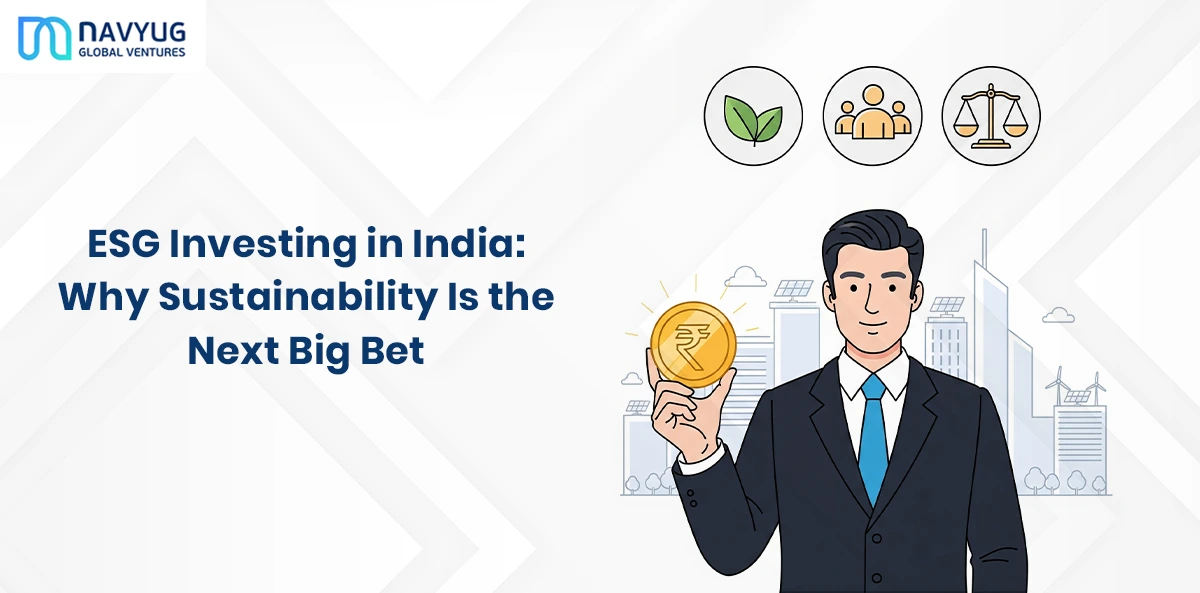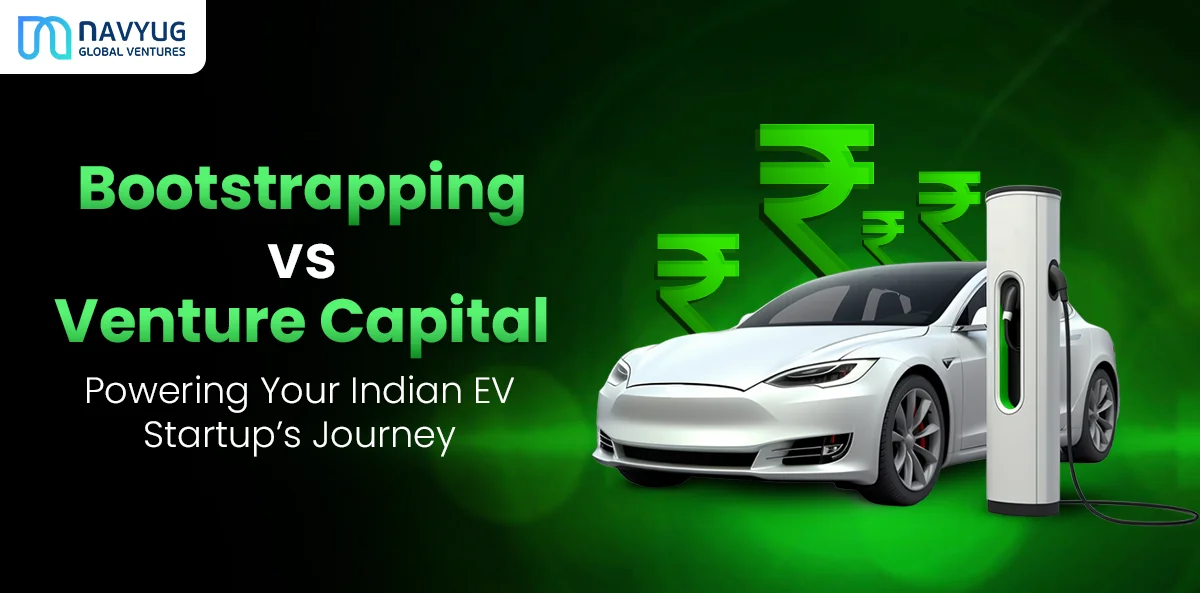ESG investing, that is, weighting environmental, social and governance performance alongside profits, is no longer a fringe idea. In India it is being championed by regulators, global investors and a growing community of sustainable entrepreneurs. As climate change and social equity concerns intensify, investors want their money to reflect their values. In this blog we examine why ESG investing in India is poised to be the next big bet and how ESG funds, sustainable startups and venture capital India are shaping the landscape.
What ESG Means
Environmental, social and governance factors measure how a company affects the planet, treats people and governs itself. Environmental criteria track emissions, resource use and waste; social metrics cover labour practices, human rights and diversity; governance looks at board independence, transparency and accountability. Companies with strong ESG practices often enjoy better reputations and lower long‑term risks. By integrating these factors, sustainable investing seeks to build portfolios that are resilient and aligned with broader social goals.
Why ESG Is Taking Off in India
Several forces have accelerated ESG investing India:
- Policy commitments: India has pledged US$2.5 trillion under the Paris Agreement and other climate goals, sending a clear signal that sustainability matters.
- Global capital: International ESG funds allocate roughly a quarter of their assets to Indian equities, showing confidence in the market.
- Homegrown innovation: Domestic asset managers such as Quantum and Avendus have launched India‑focused ESG investment funds, giving local investors accessible options.
- Regulatory backing: SEBI’s Business Responsibility and Sustainability Report (BRSR) standards require the top 1,000 listed companies to disclose ESG indicators, and the obligation will extend to value chains for the top 250 firms.
- Better benchmarks: Indices like the NIFTY 100 ESG index help investors gauge sustainability performance.
Different Flavours of ESG Funds
Investors can choose from several types of ESG funds:
- Exclusionary funds avoid industries such as tobacco, gambling and fossil fuels.
- Thematic funds invest in specific sustainability themes, like renewable energy or sustainable agriculture.
- Best‑in‑class funds pick leaders within each sector based on ESG ratings.
- Impact funds focus on ventures that deliver measurable social or environmental outcomes.
Understanding these approaches helps investors align their portfolios with their values.
How ESG Funds Are Performing
Interest in sustainable investing has driven assets under management in Indian ESG funds to around ₹10,946 crore. Surveys show that 60% of Indian investors choose these funds for higher risk‑adjusted returns (source). Yet the sector isn’t immune to market swings: a rally in defence and fossil‑fuel stocks in 2023 led to a net outflow of nearly ₹892 crore from ESG funds (source). Nonetheless, the long‑term thesis remains that companies with strong environmental social governance performance are better positioned to manage regulatory and reputational risks.
Evolving Regulation and New ESG Debt Rules
SEBI’s BRSR framework has made sustainability reporting mandatory for India’s largest companies. The regulator is raising the bar: from FY 25–26, the top 250 listed entities must disclose ESG data across their supply chains, and leadership indicators covering scope 3 emissions and green credits encourage best practices. Other agencies are joining in: the Reserve Bank of India is drafting climate disclosure standards and the International Financial Services Centres Authority is refining ESG guidelines for fund managers.
On 5 June 2025, SEBI unveiled a framework for ESG debt securities covering social, sustainability and sustainability‑linked bonds (source). Bonds can carry ESG labels only if they align with international standards, and issuers must provide detailed pre‑issuance and post‑issuance disclosures with third‑party assurances. The aim is to stamp out purpose‑washing and build investor confidence. These rules open new avenues for investors to support sustainable projects beyond equity funds.
Sustainable Startups and Venture Capital
India’s sustainability journey goes beyond public markets. More than 6,600 sustainable startups operate across the country (source), tackling challenges from clean energy to waste management. Many face funding and regulatory hurdles; a survey of 200 startups across major cities found that access to capital and consumer awareness are major obstacles, and over 60 % of founders expect greater government support (source). Yet the ecosystem is attracting specialist investors: funds like Green Frontier Capital and Avaana Climate Fund target climate‑tech and circular‑economy ventures. India’s commitment to net‑zero emissions by 2070 (source), coupled with growing investor demand, is drawing venture capital India towards sustainable innovation.
Navyug Navyug Global: Catalysing ESG InvestingGlobal: Catalysing ESG Investing
ESG investing India is not just about public markets; private capital firms are also embracing sustainability. Navyug Global Ventures positions itself as a people‑centric investment platform. We emphasise values like innovation, quality, integrity, collaboration and sustainability. Our approach is “people first,” combining innovative solutions and data‑driven decision‑making to deliver high‑impact products and service. Our business divisions span technology solutions, consumer & retail, infrastructure development, business consulting and venture capital, reflecting a commitment to supporting a diverse range of sectors.
Navyug also believes that staying ahead of the curve requires creativity and risk‑taking. Our mission is to build businesses that empower individuals and enrich communities, a philosophy that aligns closely with ESG principles. Navyug Global Ventures has demonstrated this through investments that promote inclusive growth and clean mobility. For example, in April 2025 the firm invested ₹16 crore in Chennai‑based Shrinithi Capital, a non‑banking finance company specialising in commercial vehicle finance and electric‑vehicle lending; the funding is intended to expand access to credit, deepen presence in underserved regions and support EV financing (source). By backing companies that provide sustainable lending and mobility solutions.
Starting Your ESG Journey
Individuals interested in ESG investing can follow a few simple steps:
- Clarify priorities: Decide which ESG issues matter to you, like climate action, social equity or corporate governance and look for funds that match those priorities.
- Compare fund strategies: Review exclusionary, thematic, best‑in‑class and impact funds; use benchmarks like the NIFTY 100 ESG to evaluate performance.
- Check disclosures: Read sustainability reports and ratings. SEBI’s BRSR disclosures and the new debt rules improve transparency.
- Diversify: Allocate capital across equities, ESG‑labelled bonds and even venture funds supporting sustainable startups to balance risk and impact.
After you have established your goals and explored the available fund strategies, consider how specialised platforms can help you build and manage an ESG‑aligned portfolio. Venture capital firms that prioritise sustainability can connect innovators with the resources they need. Navyug Global Ventures, for instance, focuses primarily on early‑stage rounds like pre‑seed, seed and Series A, where mission‑driven founders need capital to scale. Our investment process starts with submitting a pitch deck via its website; if there is potential, our team schedules an introductory meeting and deeper dives into the business before conducting due diligence.
Final Thoughts
ESG investing India is evolving from a moral preference into a mainstream strategy. With supportive regulations, growing investor interest and a flourishing community of sustainable entrepreneurs, the country is well positioned to integrate environmental social governance into every facet of finance. The growth of ESG funds, the launch of specialist esg investment funds, and the emergence of thousands of sustainable startups illustrate the momentum. Regulatory frameworks such as SEBI’s BRSR standards and the new ESG debt guidelines underscore the government’s commitment to transparency. At the same time, venture capital India is backing innovations that could shape a net‑zero future. By embracing ESG principles, investors can pursue financial returns while supporting a cleaner, fairer and more resilient India.
Willing to turn sustainable ideas into investable outcomes? Connect with Navyug Global Ventures and send your pitch for a quick first review.




